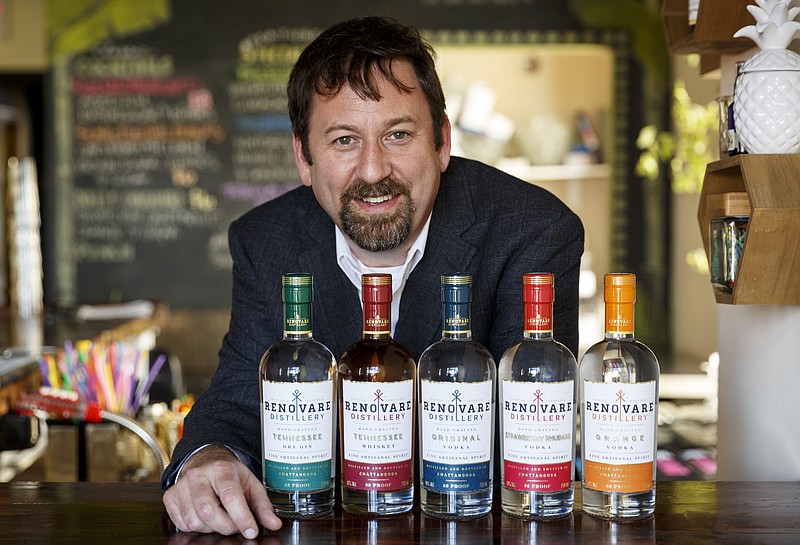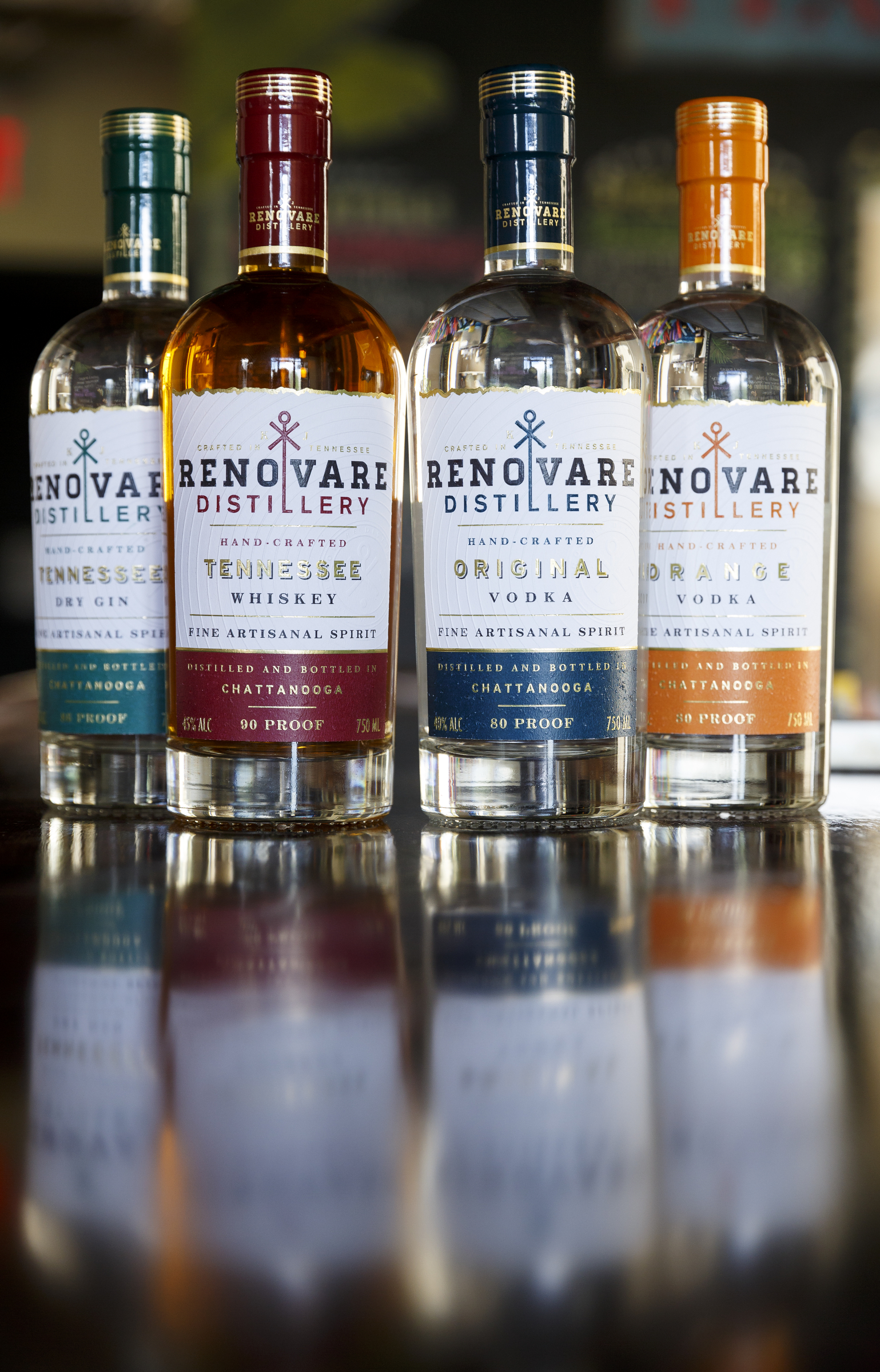Company: Renovare Distillery
Founded: 2015About the founder: Keith McConnell, 45, was a commercial airline pilot for 15 years. He earned a bachelor’s degree in aerospace from Middle Tennessee State University. He lives in Hixson.About the company: Renovare is a craft distillery that plans to feature the farmers who produce the company’s grains in order to show the link between its products and land and community behind them. The initial lineup is expected to include whiskey, vodka, gin and flavored variations. McConnell plans to disclose the process from the time the farmer plants the grain through harvest, along with the art and science of the distillation process. Whiskies will be four-grain. The startup has finished branding work and secured prototypes for bottles. Whiskey is being aged now in order to provide samples to potential investors. The next step is to secure a location for the distillery in Chattanooga. Renovare has been through The Company Lab’s accelerator program.The pitch: McConnell hopes to raise $1 million to $3 million and says he is negotiating with several Chattanooga-based investors. He plans to use half the money on equipment and the other half on operations. To date, he has invested only his own funds in the company, a sum he declined to share.Contact: 423-505-7389
In 2011, when the craft movement for distilleries was well into its upswing, Keith McConnell, a commercial airline pilot, wanted in.
It took a few years and a couple of heartbreaking losses for him to take steps toward creating a distillery of his own. On a practical level, it made sense. Airline work put him on the road three or four days a week. That meant McConnell couldn't care for his son, now 12, after his wife died of a brain aneurysm. So he quit and transitioned to Volkswagen, working part time as a contractor.
But after his brother's death early this year and going through The Company Lab's accelerator program, McConnell took the decisive step of committing completely to his startup, a craft distillery known as Renovare Distillery.
"After I lost my brother it was kind of a wake-up call: life is too short to sit on the sidelines," the 45-year-old says. "I felt like I had to be all in to make this work." He left Volkswagen in the spring. For branding and prototype work, he hired Chicago consulting firm, Thoroughbred Spirits Group.
It helps that McConnell is a "huge fan" of bourbon and whiskey. "I probably have got 30 different whiskeys at home," he says. "My great-grandfather and grandfather were bootleggers." He also loves the art and science behind creating spirits.
The number of craft distilleries has grown rapidly in the United States in recent years. A decade ago, fewer than three dozen were in the nation, according to the American Craft Spirits Association. In 2015, there were at least 1,280 active craft spirits producers, the association shows.
But McConnell says the proliferation doesn't discourage him.
"The cool thing is we can all have our own unique whiskeys and spirits and do things a little bit differently than the next guy, and that's going to come through in our product," he says.
Demand is strong, those in the industry say.
"We're still at the beginning stages of a craft distilling boom, says Alexandra Slansky, a spokeswoman for the American Craft Spirits Association. "That doesn't mean there won't be some craft distilleries who close along the way, but by and large we are going to see continued growth for the foreseeable future."
McConnell also acknowledges the locavore movement so common in the craft world, but plans to take his company a step further with it.
"Everybody likes to source local grains as much as they can," he says. "I want to showcase the farmer, kind of like the coffee industry has done with coffee beans."
Farming is something McConnell has a personal connection to: His grandfather farmed.
"When I was in the aerospace program at Middle Tennessee State University, I needed money to pay for my flying lessons. So my grandfather taught me to raise cantaloupes and watermelons," McConnell recalls. "I leased 2 1/2 acres near my parents' house and raised 1,300 cantaloupe plants and 300 watermelon plants. That is how I paid for all my pilot licenses."

